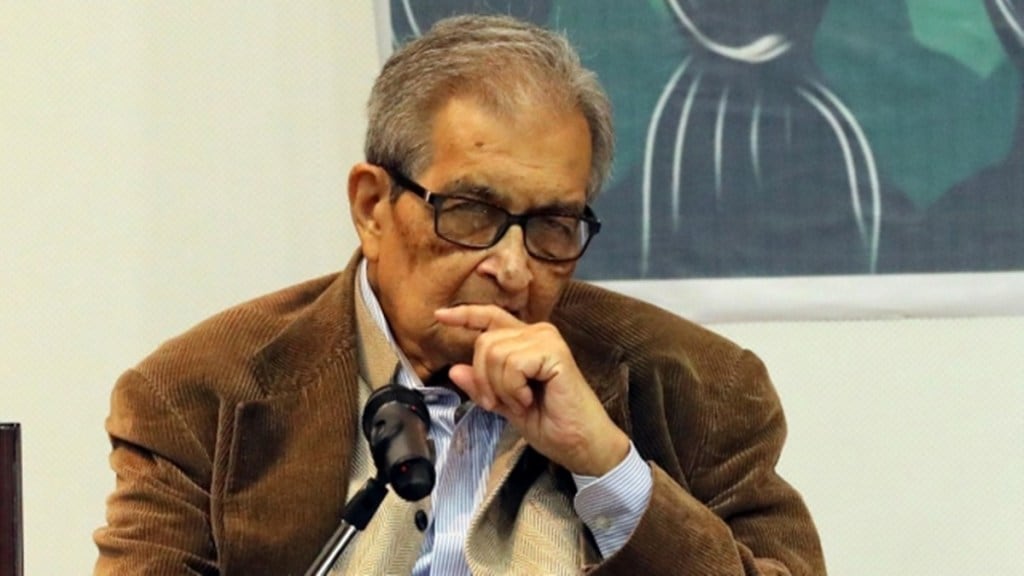Amartya Sen, the Nobel laureate economist, has backed the ongoing efforts by non-BJP parties to form a federal front ahead of the upcoming general elections.
“I think the fact of the matter is often democracy demands the sharing of power. (But) often, the majority vote did not allow the minority parties to have that force and rather left the minority (in) too precarious (a situation),” Sen said.
Also Read: Opposition Meet Day 2 Live Updates: Seat sharing, alliance name and common programme on agenda today
The remarks come as Opposition leaders from 24 parties, including the Congress, JD(U), RJD, Trinamool Congress, Samajwadi Party, DMK, AAP, CPI(M), CPI, CPI (ML), Shiv Sena, and NCP, are meeting in Bengaluru to strategise a united approach for the Lok Sabha elections in 2024.
Sen stressed the importance of Opposition parties standing together, and stated, “Given the current situation, the only way of having some kind of balancing of power” would be for the opposition parties “to stand with each other, rather than remain vulnerable.”
Also Read: ‘Hardcore corrupts meeting in Bengaluru today’: PM Modi tears into united Opposition front
The economist-philosopher added, “In some ways that seemed to be what happened in the meeting in Patna (opposition conclave held last month).”
Sen also addressed the situation in Manipur, where ethnic conflicts have resulted in significant loss of life. “What is needed is (a) just, powerful intervention by the central government.” He also said he had expected the Prime Minister would make a statement “of a just and balanced nature about Manipur”.
Furthermore, Sen discussed the defamation case against Rahul Gandhi and said he does not remember any other Member of Parliament facing arrest in any similar case or losing their seat in the Lower House because of such a case.
“It may well be very unfortunate for India that we are going in that direction,” he added.
Regarding the Uniform Civil Code (UCC), Sen expressed skepticism that it “would have a constructive role.” The “Indian Constitution is a well-thought-out structure”, he said, adding that it was passed by the Constituent Assembly after much deliberation and thought. Sen said that the process had given “different sides in the Indian polity” to express their views before a consensus was arrived.
Sen pointed out that he was “very worried about what the Code wants to try to do in India and the kind of possible negative consequences it may have in our attempted democratic experiment.”

